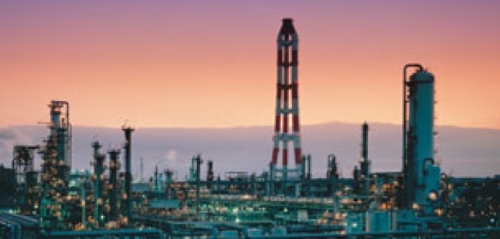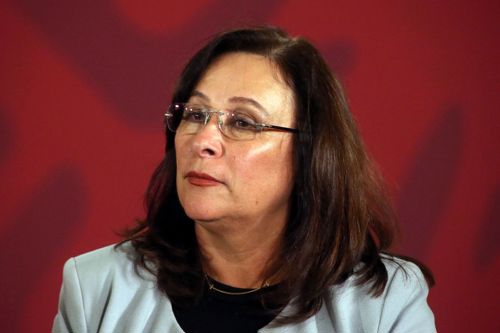The downstream rundown: In case you missed it 4/22
In case you missed any downstream news, this piece will give you a summary of some of the top stories from last week.
TotalEnergies, ENEOS to study SAF production at Negishi refinery

TotalEnergies and ENEOS announced a collaboration to jointly conduct a feasibility study to assess the production of sustainable aviation fuel (SAF) in ENEOS' Negishi refinery in Yokohama city, Japan.
The companies have already started to conduct the study for feedstock procurement and production of SAF related to this project. The proposed unit, which capacity would be 300,000 tpy of SAF, would process waste or residue sourced notably from the circular economy, mainly used cooking oil and animal fat. The two companies are considering establishing a new JV to produce SAF.
ExxonMobil begins design studies for Australia carbon capture hub
ExxonMobil is undertaking early front-end engineering design studies to determine the potential for CCS to reduce GHG emissions from multiple industries in the Gippsland Basin.
The South East Australia CCS (SEA CCS) hub would initially use existing infrastructure to store CO2 in the depleted Bream field off the coast of Gippsland, Victoria. The company is in active discussions with local industries, which may be interested in accessing the SEA CCS hub to reduce emissions from their operations.
Cost of Mexico's Dos Bocas refinery now near $10 B

The cost of a Mexican oil refinery under construction in the southern port of Dos Bocas has risen by $900 MM to $9.8 B because of additions to the project, Energy Minister Rocio Nahle said in an interview.
Nahle told Mexican newspaper El Universal that the increase was due to the addition of an electricity plant for the Olmeca refinery being built for state oil firm Pemex, as well as a gas pipeline and an aqueduct.
Fuhaichuang Petrochemical selects Axens' hydrocracking technology
Fuhaichuang Petrochemical has selected Axens’ ebullatedbed residue hydrocracking technology (H-Oil) for a capacity of 1.5 MTA as the key unit of its residue upgrading plan in its petrochemical complex located in the port of Gulei, Fujian Province, China.
The project aims at producing very low sulfur fuel oil (VLSFO) meeting RMG 380 specifications from vacuum residue feedstock along with middle distillates (naphtha and diesel) that will be further upgraded within the existing assets of the refinery.
Clariant completes divestment of 50% stake in Scientific Design
Clariant announced that it has completed the divestment of its 50 % stake in the JV which owns Scientific Design Company Inc.
Clariant’s 50 % share in Scientific Design was valued at $130 MM. Together with a profit-sharing agreement beginning on January 1, 2021 until the closing of the transaction, Clariant’s net cash inflow, before tax and transaction cost amounts to $139.4 MM.
CEMEX to turn CO2 into sustainable aviation fuel
CEMEX joins forces with integrated chemicals and energy company Sasol ecoFT and renewable energy company ENERTRAG in a milestone project that will combine CO2 with hydrogen to produce sustainable aviation fuel. This project is part of CEMEX's Future in Action program to reduce its carbon footprint and contribute to a circular economy and an integral component of CEMEX’s master plan to develop a carbon neutral operation at its Rüdersdorf cement plant by 2030.
Hong Kong zero-COVID policies create mountains of plastic waste
Hong Kong arrivals meet plastic everywhere in quarantine hotels: Remote controls are wrapped in cellophane, pillows are encased in plastic bags, food comes with plastic cutlery.
Hong Kong’s strict quarantine policies - intended to halt COVID-19 at the border and in the community - have been criticized for damaging the economy and mental health. Environmentalists say the policies are also hurting the environment by generating excess waste.
Topsoe supports new production of SAF and renewable diesel

Refuel Energy Inc. has announced its plans for the construction of a 3000-bpd renewable fuel plant in Southern Ontario, Canada.
The proposed project, called Refuel YYZ, would supply the aviation and terrestrial fuel needs of the Greater Toronto area, home to 6 MM Canadians, while lowering the CO2 emissions for the end users by up to 80%. It is also strategically located for exporting to the US Northeast.
The plant would utilize Haldor Topsoe’s proprietary HydroFlex and H2bridge technologies to produce renewable diesel and sustainable aviation fuel. Planned feedstocks include a mix of waste fats, oils and greases, such as regionally sourced used cooking oil, animal fats and non-edible crop oils.
Alliance Airlines extends relationship with GE Digital
GE Digital announced that Alliance Airlines has chosen Fuel Insight to focus efforts on saving fuel burn with fast access to flight data. The airline is building on its existing installation of GE Digital’s Safety Insight solution and therefore will be able to unlock the value of the data they gather from a single software platform.
Alliance Airlines has a fleet of 58 Fokker and Embraer aircraft with an additional 17 aircraft scheduled to join the fleet in 2022, providing charter, fly-in-fly-out, and wet-lease services across Australia.
Asahi Tanker to start ship fueling with world's first electric tanker
Japan's Asahi Tanker said it will start using the world's first electric-powered tanker for ship fueling, known as bunkering, later this month to cut carbon emissions.
Japan, which is the world's fifth biggest CO2 emitter, aims to achieve carbon neutrality by 2050, while the global shipping industry, which relies on oil to power its vessels, is trying to speed up efforts to reduce emissions of GHGs.






Comments